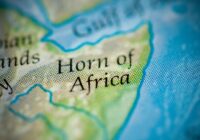In one of Africa’s largest reserves, an all-women group protects wildlife without using any weapons or violence.
Since being founded in 2013, the Black Mambas have prevented poachers from the Olifants West Region of Balule Nature Reserve in South Africa and expanded to cover the entire Balule area.
This remarkable group strives to protect wildlife and educate others about the environment, earning the reward as the United Nations’ (UN) champions of the earth. These women, aged 20 to 30, come from local villages and communities surrounding the nature reserve, and desire to conserve it.
The criterion for joining is held to a high standard and requires tedious training, which many do not find suitable for women. The Black Mambas prove these people wrong by going through four weeks of intensive training that involves arrest procedures, spotting tracks, searching vehicles and learning how to encounter lions and elephants.
This tests the women’s power and patience, but ultimately strengthens them as individuals. The job increases their confidence, teaches them how to take care of money and how to work for themselves.
While protecting the animals is the primary goal of the Black Mambas, the group also focuses on educating and changing the people’s attitude toward wildlife.
Lewyn Maefala, an environmental educator, works with the nearby communities to inform others about the importance of animals. She brings in members of the Black Mambas to classrooms to teach students about their efforts in protecting the reserve. Most students are unaware about the role of animals in the environment or the economy, and think they are just something to be killed and consumed by humans. Instead, Maefala teaches the students about why animals need to be saved.
The views expressed in this article are the author’s own and do not necessarily reflect Fair Observer’s editorial policy.
Photo Credit: Seyms Brugger
Support Fair Observer
We rely on your support for our independence, diversity and quality.
For more than 10 years, Fair Observer has been free, fair and independent. No billionaire owns us, no advertisers control us. We are a reader-supported nonprofit. Unlike many other publications, we keep our content free for readers regardless of where they live or whether they can afford to pay. We have no paywalls and no ads.
In the post-truth era of fake news, echo chambers and filter bubbles, we publish a plurality of perspectives from around the world. Anyone can publish with us, but everyone goes through a rigorous editorial process. So, you get fact-checked, well-reasoned content instead of noise.
We publish 2,500+ voices from 90+ countries. We also conduct education and training programs
on subjects ranging from digital media and journalism to writing and critical thinking. This
doesn’t come cheap. Servers, editors, trainers and web developers cost
money.
Please consider supporting us on a regular basis as a recurring donor or a
sustaining member.
Will you support FO’s journalism?
We rely on your support for our independence, diversity and quality.






